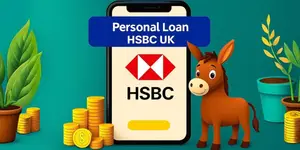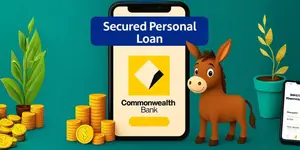Improving your credit score doesn’t have to be a marathon. With clear strategies and consistent actions, you can make significant progress in weeks and months. Let’s explore practical steps to help you build a stronger credit profile and unlock new financial opportunities.
Master Your Payment History
Your payment history accounts for the largest portion of your credit score. Lenders want to see that you’re a reliable borrower who pays bills on time. Even a single late payment can lower your score significantly, while a streak of punctual payments can quickly boost it.
Follow these steps to ensure you never miss a due date and demonstrate consistent financial responsibility:
- Set up automatic payments for recurring bills through your bank or credit card portal.
- Create calendar reminders and alerts on your phone to notify you before each due date.
- Use Experian Boost or similar services to get credit for on-time rent, utility, and cellphone payments.
- Review billing statements weekly to catch any errors or unauthorized charges early.
By combining technology and proactive monitoring, you’ll build a flawless track record that lenders admire.
Optimize Your Credit Utilization
Credit utilization—the ratio of your outstanding balances to your available credit—accounts for another substantial part of your score. Lower utilization indicates that you’re not overreliant on credit and can manage your spending responsibly.
Strive to keep your utilization below 30%, and aim for around 10% to see even greater gains. Implement these tactics:
- Pay down revolving credit card balances as a priority, focusing on cards with high interest rates first.
- Make multiple smaller payments throughout the month so the balance reported is always low.
- Request a credit limit increase after demonstrating responsible use for six months or more.
- Spread charges across multiple cards rather than maxing out one account.
Maintaining low credit card balances reduces financial stress and signals strong credit management to scoring models.
Implement Smart Debt Management
If you’re juggling multiple debts, consolidating them can simplify your payments and potentially lower your interest rate. A debt consolidation loan or a balance transfer credit card can be effective tools when used wisely.
Explore options like debt management plans offered by reputable credit counseling agencies. These plans may negotiate lower interest rates and combine multiple payments into one fixed monthly amount, making it easier to stay on track.
Adopt a repayment strategy that suits your personality and budget:
The debt avalanche method focuses on paying off the highest-interest debts first, reducing overall interest paid. Alternatively, the debt snowball approach targets the smallest balances first, building momentum and motivation as you eliminate each account.
Build Credit with Limited History
New borrowers or those with sparse credit files need to establish a track record. Begin with a secured credit card, which requires a cash deposit as collateral. Use it for small purchases, keep the balance low, and pay in full each month.
After several months of responsible use, you may qualify for an unsecured card. Other strategies include becoming an authorized user on a family member’s card with a strong history or taking out a credit-builder loan designed to report positive payments to the bureaus.
These alternative methods can help you demonstrate steady account activity even before large loans or multiple credit cards come into play.
Leverage Additional Credit-Boosting Techniques
Beyond the traditional factors, you can enhance your profile by reporting non-traditional payments. Services that report rent, utilities, and streaming subscriptions can immediately boost your Experian score and signal strong payment habits.
Regularly check your credit reports from all three major bureaus—Experian, TransUnion, and Equifax—to spot errors or signs of identity theft. Dispute inaccuracies promptly to ensure your score reflects your true history.
Protecting your credit identity through unique passwords, secure networks, and fraud alerts is just as important as making payments. Small preventive actions safeguard the progress you’ve worked hard to achieve.
Cultivate Good Financial Habits
Improving your credit is not a one-time effort but an ongoing journey. By embedding healthy financial practices into your daily life, you ensure continued growth and long-term success.
- Create and stick to a monthly budget to understand where every dollar goes.
- Build an emergency fund to cover unexpected expenses without turning to credit.
- Apply for new credit sparingly to avoid multiple hard inquiries that can ding your score.
- Pay off your full credit card balance each month to eliminate interest charges.
With a well-defined spending plan, you’ll stay ahead of financial surprises and maintain a healthy credit profile.
Timeline Expectations
Results vary depending on the strategies you employ and your starting point. While some actions yield immediate effects, others take months to fully reflect in your credit score.
Remember that negative marks like late payments remain on your report for up to seven years, but their impact lessens over time as you establish consistent positive behavior.
Conclusion
Improving your credit score is within reach when you apply targeted strategies and maintain discipline. From mastering on-time payments to optimizing credit utilization and building positive habits, every action counts.
Stay patient and persistent. With each on-time payment you make and each balance you reduce, you’re laying the foundation for stronger financial freedom and greater opportunities in the future.
References
- https://www.nerdwallet.com/article/finance/raise-credit-score-fast
- https://www.experian.com/blogs/ask-experian/credit-education/improving-credit/improve-credit-score/
- https://www.aarp.org/money/personal-finance/improve-your-credit-score-tips/
- https://ebrpl.libguides.com/c.php?g=44608&p=282100
- https://www.associatedbank.com/education/articles/personal-finance/financial-planning/how-to-build-and-maintain-a-good-credit-score
- https://www.incharge.org/debt-relief/credit-counseling/bad-credit/how-to-establish-credit-when-you-have-no-credit-history/
- https://www.intuit.com/blog/innovative-thinking/financial-tips/build-credit/
- https://www.experian.com/blogs/ask-experian/ways-to-improve-credit/










